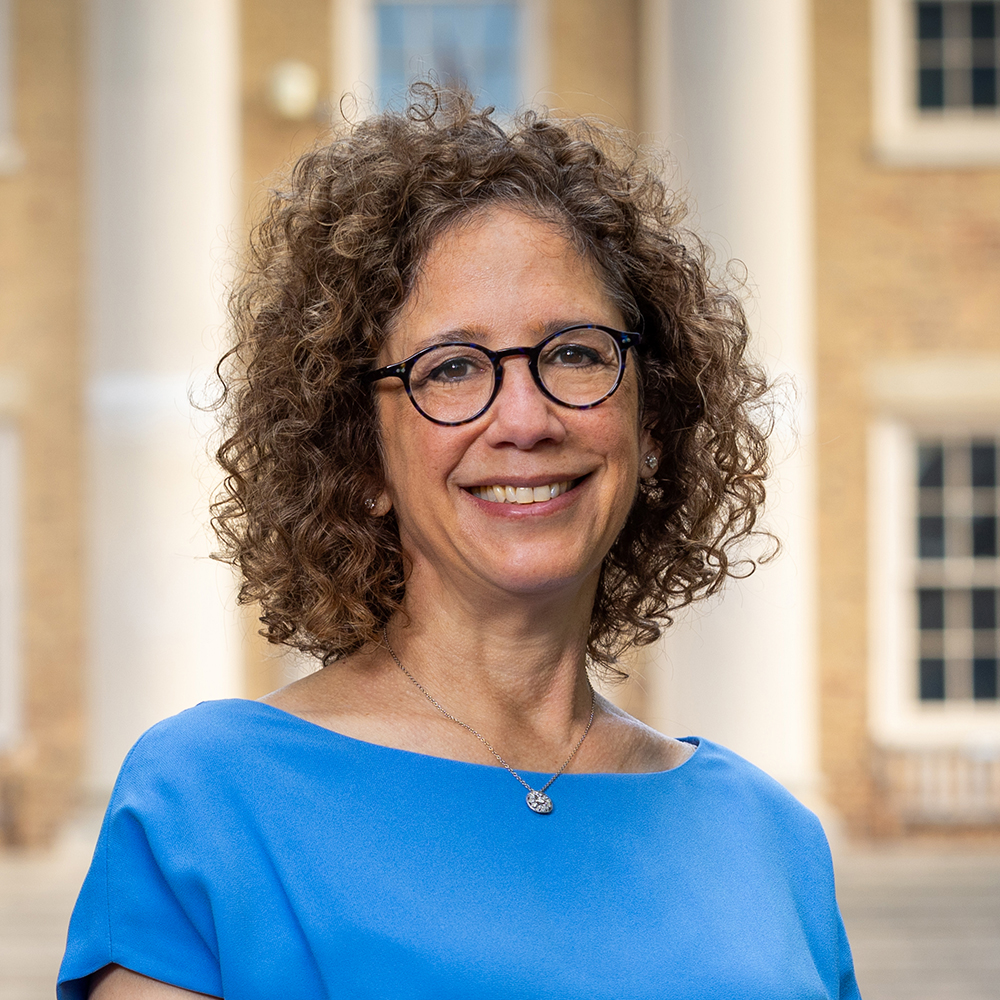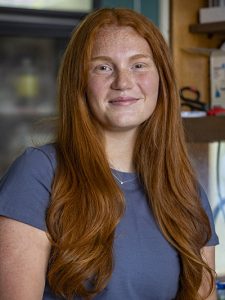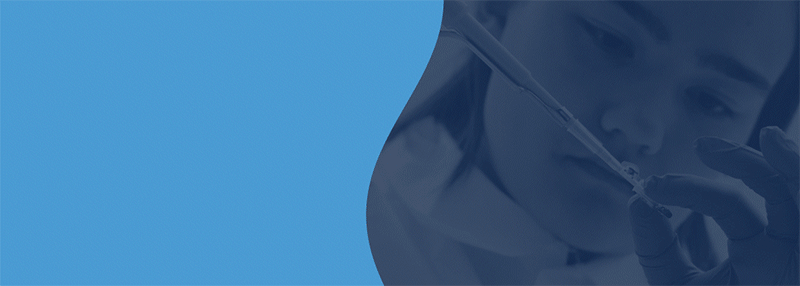Carolina Discoveries

Welcome to Carolina Discoveries, a blog from Vice Chancellor for Research Penny Gordon-Larsen about current topics pertinent to the Carolina research community. Every month Dr. Gordon-Larsen will post a personal message that provides updates from the OVCR organization, insights from the greater UNC research enterprise, or recognition of those that help make us one of the top public research universities in the world.
Carolina: Empowering Undergraduates Through Research
By , January 11, 2024
Carolina is a research powerhouse. We make discoveries every day that transform and save lives. The University’s mission to educate comes alive through research experiences for our undergraduate students.
Undergraduate research experiences are a pivotal element of Carolina’s research mission and enterprise, affording our students valuable opportunities to address intricate questions and navigate unforeseen challenges. Students learn to analyze data, formulate solutions, and adapt to changing circumstances, honing valuable skills applicable to any future career. From writing research papers to presenting findings, students learn to communicate effectively in various formats and to diverse audiences. This enhances communication skills, crucial for success in all fields. Students also gain proficiency in specific software, data analysis tools, or laboratory techniques. These technical skills can significantly enhance their employability and open doors to specialized career paths.
As a parent of a college senior and a recent college graduate, I know how important participating in research has been for both of my children. Like many of our students, those opportunities (one focused in STEM and the other in humanities) have been among the highlights of their college careers and were certainly their most important academic experiences.
Engaging in research alongside the world’s top faculty researchers is an opportunity unlike any other — and on Carolina’s collaborative campus, these experiences are truly transforming students’ lives. With the IDEAs in Action general education curriculum, all undergraduate students are required to engage in research. This curriculum affords the opportunity to engage in hands-on, experiential learning and insight into the wonderful world of research through Research & Discovery courses. These courses are designed to bring our students into focused research alongside faculty for an immersive experience that allows students to produce original scholarship or creative work. In doing so students “reflect upon, deepen, and connect knowledge and capacities,” as described on the IDEAS in Action website.
In the academic year 2022-23, 6,890 students were enrolled in Research & Discovery courses for research credits — a 9.5% growth in those courses from Fall 2022 to Fall 2023. The Office of Undergraduate Research (OUR) breaks down this impressive number as such:
- Enrollment in faculty mentored independent research: 1,014
- Enrollment in lab courses that met R&D requirements: 838
- Enrollment in other lecture courses that had a significant research component/met R&D requirements: 4,341
- Enrollment of Senior Honors Thesis courses: 697
In addition, OUR reports that 399 students (8.2% of graduates) engaged in research as part of their honor’s thesis. Since these numbers only represent coursework, students who conduct research for pay, work-study, or as volunteers are not captured. But we quantify and track students engaged in sponsored research projects (i.e., research funded by an external organization, such as federal, state, private organization, or entity) through research databases managed by the Office of the Vice Chancellor for Research. According to our metrics, 754 students have been engaged in sponsored research over the last six months.
When faculty members are awarded competitive research grants from federal, private, or other sources, they bring funding to Carolina that provides data, support, and access that benefits our undergraduate students. Most importantly, engaging in hands-on research keeps students engaged and excited to explore, discover, and push boundaries. Student researchers are passionate about making advancements in their fields, and these experiential opportunities create highly trained professionals who give back to the state and beyond by making the world a better place.
Below are a few illustrative examples of the amazing work that our undergraduate students take part in with their faculty mentors:

“I enjoyed being able to work in different areas and to get a better understanding and appreciation of all the things that go into a big study like this.”
Junior Sara Ahmed worked with the Carolina Population Center’s Dynamics of Extreme Events, People, and Places (DEEPP) project during her summer internship in 2023. With a major in biostatistics, she helped the DEEPP team assess the short- and long-term impacts of storms in North Carolina by improving the study’s youth questionnaire, writing new questions that were more relevant for teenage study participants.
“The way I was able to volunteer at events and network with those already in the field helped me realize that this is where I’m meant to be.”
Senior Alex Acosta is an environmental health sciences major and a student ambassador for the Bachelor of Science in Public Health (BSPH) program at the UNC Gillings School of Global Public Health. In the summer of 2022, he received funding through the Carolina Covenant Career Accelerator Program to investigate ways to improve psychiatric patient transport and EMS responses to pediatric calls. He now feels called to work in the medical field, applying his training in public health to improve the lives of underserved North Carolinians.
“From my research, I have developed passions for understanding microplastics exposures and overall maternal and child health. These research experiences also helped me apply my interests in several classes and find amazing internships!”
Senior Sarah Kirsh is majoring in environmental health sciences and biology. Her research focuses on the potential harm that microplastics in the environment may have on pregnant women and their babies in North Carolina. Working with Department Chair Rebecca Fry, she is also performing basic science research to understand the potential toxic impacts of microplastics on moms and babies and will publish this work to increase scientific knowledge on the topic. She hopes to pursue a PhD in environmental sciences.

“I can’t count the number of times I’ve been overwhelmed by the flood of advice and proposed future experiments that were given purely out of the love for science.”
Senior Lilly Papell is a senior majoring in biology and minoring in chemistry and creative writing within the UNC College of Arts and Sciences. She studies how genome organization within microscopic animals called tardigrades plays a role in how they survive DNA-damaging environments that would kill most lifeforms. She conducts research with the Goldstein Lab and recently began a research forensic science internship at RTI International.
“This project gave me the courage I needed to realize that research is exactly where my heart lies, and gave me the confidence to know that I could do it.”
The Department of Applied Physical Sciences within the College offers a minor that trains students to utilize an engineering mindset to address societal problems. In one of Professor Ronit Freeman’s classes, students form convergent teams representing different majors and work together to advance a new technology to a proof-of-concept phase, including pitching it “Shark Tank”-style. In the Freeman Lab, first-year student Emma Hansen created a functional, pollution-free light bulb using luciferase, the bioluminescent enzyme that allows fireflies to glow.
“In the future, I aim to focus my efforts at the intersection of the laboratory and the clinic to further understand and better treat the devastating conditions I see in patients.”
Junior Abby Lehr is an undergraduate researcher in the Weeks and Laederach labs, studying the underlying biochemistry and molecular biology of human diseases. She is majoring in chemistry and biology within the College and was the Institute for Convergent Science’s (ICS) inaugural AGIEL (Advance Great Inventions or Leave Early) Summer Undergraduate Student in 2023. During her summer research with ICS, she worked on exploring small molecule binding and functioning, with the greater goal of creating new and improved therapeutics.

“I have enjoyed the opportunity to engage in interdisciplinary collaboration with a variety of researchers in fields ranging from nutrition to bioinformatics to epidemiology.”
One of my own undergraduate students, Aditya Shetye, received his BSPH in nutrition in May 2023. He stayed at Carolina for the Department of Nutrition’s dual degree program and will receive his Master of Science degree in May of 2024. Aditya leveraged his undergraduate research into a formal master’s thesis and will publish his results in a peer reviewed journal. This has been a wonderful and efficient opportunity for Aditya to further his career. Aditya’s research applies precision nutrition techniques to uncover associations between diet and cardiometabolic disease. Along the way, he has developed highly marketable, high-level technical skills in statistical programming and analysis.
The substantial investment in undergraduate education, our students, and the lasting impact they’ll have on Carolina’s legacy comes from research funding procured by our distinguished faculty. This funding includes contributions from federal, private, and various other sources. Research experience provides undergraduate students with invaluable skills, hands-on training, and a competitive edge for their academic and future professional pursuits. There is no better preparation for the post-grad years and entry into the workforce than working hands-on with a team to achieve a significant goal. That these teams are led by world experts in cancer, infectious disease, engineering, humanities, and more offers an experience that is uniquely Carolina.
Permalink: Carolina: Empowering Undergraduates Through Research
Earlier:
By , December 13, 2023
2023 was a banner year for research at Carolina and for the administrative offices within the Office of the Vice Chancellor for Research (OVCR) that support it. I am proud of the ways we worked together to improve and enhance the quality and efficiency of our research enterprise in support of outstanding talent across our campus. The results of those efforts have shown tangible impact for the University, our state, and beyond. None of these impacts would be possible without the support of staff across our research administrative offices and our talented workforce.
This year our offices supported research, critical equipment and infrastructure, drug discoveries for translational research with life-saving potential, and new, large awards. A few examples of those new awards include up to $50 million in FDA funding to establish the Research Triangle Center of Excellence in Regulatory Science and Innovation (or Triangle CERSI), $21 million in funding from the Patient-Centered Outcomes Research Institute to make pregnancy and birth safer for North Carolinians, and continued funding for the North Carolina Translational and Clinical Sciences Institute. We also revitalized the Creativity Hubs program to intentionally cultivate a culture that spurs innovation with a call for impact-oriented science.
The first phase of planning for our Strategic Research Roadmap, with cross-campus engagement and investment, was completed this year. We will begin implementing the results of our efforts in the new year which will help us grow our research enterprise and its supporting infrastructure, solidify and grow strategic research partnerships, and improve research administrative support.
The development of the new Translational Research Building also moved towards realization with designer approval. Once open, it will house the technology and translational programming needed to increase Carolina’s discovery and translational science market share and compete with top biomedical and research institutions across the country.
And we just surpassed $1.36B in research expenditures, ranking us the 12th largest research university in the nation.
This growth requires significant effort from the OVCR administration offices. Their contributions are essential to our continued success as a research enterprise. Although not an exhaustive list, the examples below capture a snapshot of the amazing work our OVCR offices conducted this year. Thank you to all those who supported these accomplishments and more.
Permalink: Research Enterprise Support in 2023
By , November 9, 2023
Research is a major driver of innovation and economic growth across North Carolina. The University of North Carolina at Chapel Hill annually attracts more than $1.1 billion to the state’s economy to fund research that creates a better quality of life for all its citizens. Examples of this type of research, which also has commercial potential, include creating treatments and solutions to societal issues, like cancer, traumatic brain injury, and opioid misuse; ensuring our state’s resiliency to challenges posed by changing environments; and developing solutions and improvements for education and transportation. And we can do more.
Headquartered on our campus, the NC Collaboratory, which was established by the North Carolina General Assembly, plays an important role in ensuring that our research makes an impact on the state. And more recently, the state made a major investment to establish innovation hubs and fund projects throughout the UNC System through NCInnovation. The role of universities in accelerating our state’s commercial growth has never been more clear or more pressing. And it is our responsibility to ensure that our work has public benefit.
Carolina researchers need a clear path to take their work beyond our campus boundaries and into tangible, marketable solutions for communities, the state, the nation, and the world. By creating a culture and ecosystem of innovation aligned with our research mission we can advance discovery, creativity, knowledge, and creation of products for the public good.
People
We have enormous human capital that is primed to be unlocked. The knowledge and practices of our faculty and students are the fuel for innovation. It will be an important first step to leverage this talent to generate truly transformative science that can solve the pressing problems of today and tomorrow. This will require broadening our definitions of “innovator” and “entrepreneur” and challenging more scientists and scholars to push their work to the broadest potential for impact. Our researchers will need to articulate the translation of their work while we, as research administrators, provide the resources necessary to be successful.
By building a culture of innovation and enabling a talented workforce that is well-versed in thinking about the impact of science and scholarship, we have the potential to grow North Carolina’s already impressive life sciences industries and expand our state’s commercial viability to industries like energy, digital technology, generative AI, life sciences manufacturing, AgTech, defense innovation, electronics, and more.
Synergy
To truly succeed, we must create synergies and integration of research and innovation. We need to break down the typical siloed approach of separating departments and centers of innovation from the research mission of the University. With research as the fuel, and with alignment and integration with centers of innovation, we can provide the spark and the resources to transform science into many beneficial outputs and impacts, catapulting research conducted on our campuses out into the public domain.
We are in an outstanding position to create these synergies now. I am eager to partner with Dedric Carter, our new vice chancellor for innovation, entrepreneurship and economic development and chief innovation officer, who brings substantial expertise and new ideas.
Infrastructure
We also need to make meaningful changes to our campus systems and structures, transforming them to be nimbler. This means removing roadblocks and fostering environments that facilitate pathways to commercialization. By building and improving state-of-the-art research and innovation assets, we will enable success.
We recently opened the Innovate Carolina Junction, a hub of innovation in downtown Chapel Hill that brings our network of innovators and entrepreneurs together in co-working, meeting, lab, and accelerator spaces. We are also moving forward on the development of the new Translational Research Building that will house the technology and translational programming needed to increase Carolina’s market share and compete with top biomedical and research institutions across the country.
We also continue to work hard to identify and invest in strategic potential commercial opportunities across campus through research translation programs like Creativity Hubs and Technology Development Grants, and organizations like the Institute of Convergent Science.
Collaboration
Across our campus, we continue to leverage our low stone walls to stimulate more team science across the full translational spectrum — from discovery at the bench or in the field, to models, to clinics, to communities, and across populations — to solve the world’s greatest challenges. These challenges require integrative approaches that cross disciplinary boundaries to create ideas and technologies. Strategic partnerships that engage applied scientists and engineers with fundamental, basic, with discovery scientists and scholars are particularly important in moving research and knowledge off our campus and into the world.
Successful innovation also requires collaborations outside of our campus with industry partners, organizations, and communities. Working with external collaborators creates new potential and new energy to create solutions and applications. Organizations like NCBiotech, which provides funding for life science research, technology commercialization, and entrepreneurship, play a particularly critical role by helping to bring ideas from our campuses to market.
We are at an unprecedented moment in time when technological and scientific advances create new areas of scientific inquiry while major expansion of regional industries directly draws on our research strengths, talents, and workforce. To capitalize, we must enable and foster a culture of innovations on our campus; continue fostering collaborations across departments, institutions, industries, and communities; work with state legislators to attract new industries to North Carolina; and continue to minimize the innovation gap between research and its products. In doing so, we can ensure our leadership in the next phase of our state’s economic growth.
Permalink: Unlocking Carolina’s research potential for societal benefit
By , October 12, 2023
The Office of the Vice Chancellor for Research is once again proud to partner with the Office for Undergraduate Research to host University Research Week. Now in its fifth iteration as a pan-campus celebration of Carolina’s research excellence, the event has become one of the University’s signature annual events and will be held from October 23-27. Each year we celebrate the many ways that Carolina’s research impacts our state and beyond with research that aims to solve the world’s greatest challenges.
This year, the theme of the celebration is, “A Climate of Change at Carolina.” Through many exciting events, lectures, and presentations, we will recognize the contributions of students and faculty who are engaged in innovative research that supports new discoveries in their fields while the world around them changes.
Carolina has always been at the forefront when it comes to environmental science and scholarship — whether it’s finding solutions to PFAS in North Carolina waterways, creating novel solar energy solutions, predicting financial risk of hazardous weather, or managing fragile shorelines — our faculty and student researchers are accelerating new discoveries and solutions to environmental challenges.
Recent extreme weather events around the globe have illustrated the deadly and costly impacts of environmental change. During URW, the OVCR will host a series of Lunch and Learn panel sessions to highlight cutting-edge environmental science and scholarship. Each session is hosted by leaders from our top environment-related units across campus. At these sessions, attendees will learn how our researchers, along with their teams and students, are addressing flooding, health, the economy, and distinct populations affected by climate change.
Flooding and our Future
Floods are one of the most consequential hazards facing North Carolina and the world due to their unpredictability, severity, and economic and health impacts. Presented by the North Carolina Collaboratory and the UNC Institue for the Environment (IE), the Flooding and our Future panel will explore the impact of flooding on coastal ecosystems. The panel will feature researchers who are currently funded by the NC Collaboratory’s NC Flood Resiliency Hub which focuses on many issues including flood mapping, mitigation actions, resiliency planning efforts, natural infrastructure, and community impacts.
While flooding is certainly an issue with weather-related emergencies due to storm surges in coastal regions, rural and urban environments are also at risk. Research from the NC Flood Resiliency Hub has recently shown that as city sprawl continues to spread across the state, flooding is set to become more of a threat if mitigating measures are not taken. The Hub also provides the latest information about flood research and efforts to mitigate the impacts of large storm events for lawmakers and other stakeholders.
NC Collaboratory Research Director Greer Arthur will moderate the panel discussion featuring IE Director and UNC’s Chief Sustainability Officer Mike Piehler, Assistant Professor of Earth, Marine and Environmental Sciences Antonia Sebastian, and William R. Kenan Jr. Distinguished Professor, Department of Environmental Sciences and Engineering Greg Characklis.
Health and Heat
There has also been an increase in extreme temperature events across the globe, with devastating impacts, ranging from water and food shortages to health to energy and emergency hazards. Researchers at UNC Gillings School of Global Public Health, the UNC School of Medicine, and many Carolina centers and institutes are on the frontlines of assessing the impact of rising temperatures and environmental exposures on human health. These researchers focus on the complex and dynamic interactions across natural, engineered, economic, and social systems.
Jason West, professor and director of graduate studies in the environmental sciences and engineering department, recently published findings on how extreme heat and intensity of urban heat islands (cities where temperatures are warmer than nearby rural areas) affect cardiovascular health. In 2022, W.R. Kenan Jr. Distinguished Professor Hans Paerl was awarded the lifetime achievement award by the U.S. National Harmful Algal Bloom Committee for his body of work on the increase of algal blooms as a result of warmer temperatures. And Noah Kittner, assistant professor of environmental sciences and engineering, is interested in better understanding disparities associated with energy burdens and how climate change may be exacerbating these inequalities.
These researchers will be sharing their work during the Health and Heat Lunch and Learn session, which is co-presented by Gillings and will be moderated by Rebecca Fry, director of the Institute for Environmental Health Solutions within Gillings.
Economics and Environment
Climate changes bring significant environmentally related financial losses, ranging from weather-related damage, water and food shortages, health impacts, remediation costs, and more. The economic impact of climate change will be the focus of the third Lunch and Learn session of the week, Economics and Environment. This panel will be co-presented by the UNC School of Government’s Environmental Finance Center, and the center’s director, Erin Riggs, will moderate the discussion.
Panelists include Professor of Finance Ric Colacito, whose recent research found that, in the worst-case scenario, rising temperatures could reduce U.S. economic growth by up to one-third over the next century. Aubrey L. Brooks Professor of Law Don Hornstein will also be a panelist. Brooks is a highly cited, nationally recognized expert of disaster, natural resources, insurance, and environmental laws.
UNC Water Institute Environmental Engineer and Research Associate Siddhartha Roy will be the session’s third panelist. As a graduate student, Roy worked on the Flint water crisis. At the Water Institute, he is working in some of the poorest countries in the world and asking important questions about water quality and health, issues compounded by the effects of changing climates.
Communities and Climate
Populations are impacted by environmental changes in complex and often bidirectional ways. The fourth session of the week, Communities and Climate, will explore populations impacted by climate change. No stranger to population science, UNC Carolina Population Center (CPC) Director Karen Guzzo will moderate the panel, and the center will co-present the session.
Panelists include Carolina Demography Director Nathan Dollar, who served as a research scientist and project director for the Dynamics of Extreme Events, People, and Places (DEEPP) project at CPC where he worked with an interdisciplinary team of researchers investigating the factors that shape how people and communities in eastern North Carolina prepare for, are affected by, and recover from extreme weather events.
UNC Coastal Resilience Center (CRC) Research Associate Fern Hickey, a contributor to the CRC’s recent Year 2 Landscape Study Report, will also serve as a panelist. The report was co-authored by CRC researchers Cassandra Davis, Miyuki Hino, and Phil Berke, among others, and provides evidence as to how local and federal agencies can improve measurement of outcomes for marginalized groups to help guide resilience and disaster recovery planning.
Chair of the Department of Geography and Environment Conghe Song will be the session’s third panelist. Song’s recent research investigates interrelationships among land-cover/land-use change and global climate change, deforestation and reforestation, urban expansion, and agricultural extensification and abandonment.
Our campus expertise in environment- and climate-related sciences goes far beyond the group of impressive speakers featured at our Lunch and Learn sessions. These panel sessions represent just a fraction of the work Carolina researchers and students are conducting that creates beneficial impact for people and their environments. I hope you will join me in attending these sessions and in exploring the other exciting events planned for this year’s University Research Week. The featured sessions are truly impressive and feature some of the most exciting and impactful research happening on our campus.
Permalink: University Research Week
By , September 14, 2023
By the time this blog is posted, it will have been just over two weeks since we tragically lost a bright star among our faculty. I am devastated and saddened by the loss of our valued colleague, a brilliant scientist who was leading novel research in nanoscience.
Zijie Yan applied innovative, applied approaches to solving critical problems in medicine by using nanobots to work within cell structures to deliver precise and targeted therapies without damaging biological systems or cells. These types of nanotherapies are desperately needed in cancer, neurological and other debilitating diseases. His science and his many contributions will make the world a better place.
Yan was an associate professor in the College of Arts and Sciences’ Department of Applied Physical Sciences (APS). He joined Carolina in 2019 and had recently been awarded tenure. He was making impressive contributions to his field, within the department, and towards the University’s growing portfolio of applied science research.
He was recently published for his development of holographic optical tweezers, a technology that enables precise control and manipulation of nanoparticles using shaped laser beams. The precision afforded by these lasers has immense potential for practical applications in biomedicine, offering a less damaging solution to conventional techniques that can damage cells. As is typical of colleagues in APS, Yan was a true trailblazer conducting transformational science with potential to save lives, preserve health, and improve well-being for people with serious diseases.
Yan was one of only 12 full or joint faculty members within APS. And while that may seem small, these faculty have the talent to make significant impacts on a variety of industries, including health care (like Yan), energy, and materials science. The primary focus of the researchers in APS is on application – in the juncture between engineering and science – to discover innovative solutions to real-world challenges. As such, APS is a highly collaborative group that works on a diverse portfolio of interdisciplinary research. Their faculty members collaborate with researchers from other departments and schools to transform discoveries into designs, innovations, and applications.
APS is part of Carolina’s applied sciences and engineering research portfolio and is key to our strategic prioritization of innovations and applications that help solve the world’s greatest challenges. The department is also an example of our collaborative culture and our ability to work across disciplines to advance practical solutions with cutting-edge science – combining the tools of engineering with knowledge and discoveries across a variety of disciplines. To illustrate the kind of research that APS leads, below are three examples of APS faculty working on critical issues in applied physical sciences.
Wubin Bai is partnering with clinical researchers to design and develop next-generation disruptive bioelectronic systems. These new systems can solve critical medicine issues, leveraging polymer chemistry to create resorbable materials for surgery and biochemical sensing and dosing for proactive monitoring and therapeutics. He has forged a collaboration with Carolina neuroscientists working to develop precision medicine solutions to neurological disorders, and with other experts to devise innovative solutions for cardiac tissue damage, metabolic challenges of diabetes, and supports for successful tissue transplantation.
Similarly, Ronit Freeman has forged collaborations with clinical researchers to bring her specialty in the design of molecules and structural materials to create next-generation sensors, nano robots, drug breakthroughs, and clinical tools. She is working with a colleague in pediatric pulmonology to bring her skills and tools to design peptides capable of reversing lung fibrosis. She is also collaborating with colleagues in mathematics and pharmacy to create a computational model of virus transport through mucus to create novel barriers for inhaled pathogens. Ronit is making substantial contributions in the synergies between synthetic and living systems to identify solutions to pressing challenges.
Another example is APS department chair, Theo Dingemans, an interdisciplinary polymer scientist who designs novel polymers for functional and structural applications. He is working with environmental scientists and computational modelers to develop an innovative and affordable membrane-based water purification technological tool to remove environmental chemicals from drinking water. Importantly, Dingemans merges a collaborative culture with a priority for application, leading the department to forge new collaborations across campus to solve the world’s greatest challenges.
I know from my interactions with my APS colleagues and friends that they are committed to maintaining their mission towards creating materials, methodologies, and solutions that will have worldwide impact for decades to come. And they have our full support to do just that. I know that they were all deeply affected by what transpired last month. My thoughts are with all Professor Yan’s family and with APS faculty, staff, students, and friends as they process and move forward.
While this tragedy has impacted us all, our individual experiences are varied and diverse, including potentially being affected by another incident involving a firearm on our campus this week. It is a time for us to show our community’s commitment to one another. Please continue to extend patience and kindness, and please remember to take care of yourselves. Should you need resources devoted to helping yourself and others through trauma, the University has curated a very helpful website with advice from our campus mental health experts.














